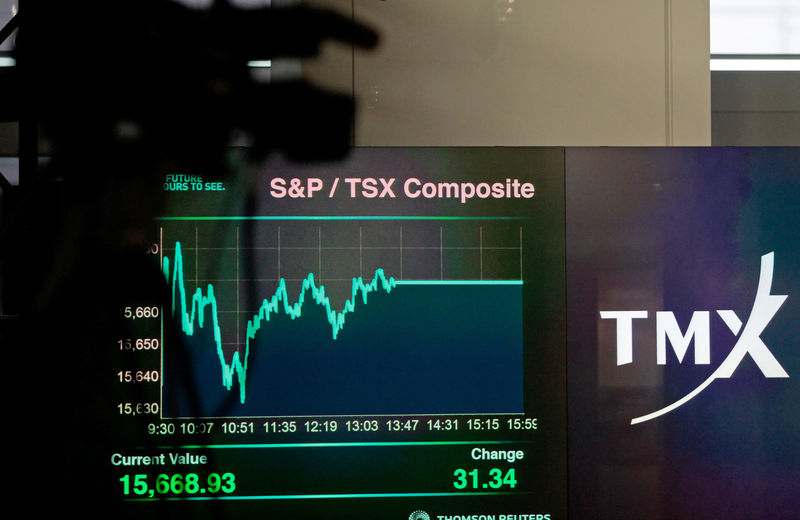This post was originally published on this site
https://i-invdn-com.akamaized.net/news/LYNXMPEE3S00D_M.jpg
TORONTO (Reuters) – The owner of Canada’s biggest stock exchanges is seeking to attract more Asian derivatives investors, aiming to boost the share of its overall revenues from outside the country to half from one-third currently.
TMX Group, which operates the Toronto Stock Exchange, the TSX Venture Exchange and the Montreal Exchange, plans to extend derivatives trading to 23 hours in the second half of 2021 from 14-1/2 hours now to attract Asia-Pacific institutional investors, Chief Executive John McKenzie told Reuters in an exclusive interview.
“We’ve been engaged in dialogue with asset managers in those regions; we know there’s demand to get access to North American product,” McKenzie said. “But we don’t make it easy to come to Canada.”
Late last year, TMX added two-year government bond futures and new environmental, social and governance-based equity futures, McKenzie said, and plans to introduce 30-year interest-rate and equity dividend futures this year.
McKenzie said TMX hopes both to expand outside Canada and beyond its traditional equities trading operations, which already accounted for less than a tenth of revenues in fiscal 2019, half the level of a decade earlier.
“The general view is that the equity trading business is a little more mature and very competitive,” said Colin Stewart, CEO of investment manager JC Clark. “Derivatives are more of a growth area.”
TMX hopes the derivatives push will help drive its goal of double-digit profit growth. This in turn could lift its stock price. Its shares rose 5.8% over the past year, far less than the 14% gain for Singapore Exchange (OTC:SPXCY) Ltd, 20% for Intercontinental Exchange (NYSE:ICE) and 79% for Hong Kong Exchanges and Clearing Ltd.
Revenues from TMX’s derivatives offerings, which are traded on the Montreal Exchange, were up 21% in the fourth quarter of 2019 from two years earlier before the extension of trading to European hours.
CAPITAL FLOWS
Asia-Pacific pension funds are seeking more global investments for assets under management that, according to a September report from Willis Towers Watson (NASDAQ:WLTW), have grown faster than counterparts’ in other regions.
“Capital has become much more global,” said Marius Zoican, assistant professor of finance at the University of Toronto. “If you don’t serve the European and Asian markets, you end up with blind spots… When your market is open, there is information that was already processed on other markets.”
Net flows from Japan into Canadian bonds, for instance, rose over 300% in the first 11 months of 2020 from the same period a year earlier, according to Statistics Canada.
Increasing access to products like interest-rate futures allows investors to take risks in Canadian bonds or hedge existing holdings, McKenzie said.
After TMX expanded into European hours in 2018, derivatives trading from the region contributed between 6% and 10% of volumes in 2020, he said.
International peers with global trading have 15% to 30% of total volumes coming from after-hours sessions. They also get as much as 60% of derivatives trading flow from outside their home markets, versus 40% at TMX, McKenzie said.
“That’s the upside potential… that’s what success will look like if we do those things well,” said McKenzie, who became chief executive in August.
TMX is working with Canadian participants to ensure there is market-making through the night, McKenzie said, adding that the cost of extending hours isn’t major.
But Canada’s market remains small and shallow compared to the U.S. and Europe, so attracting investors may be an uphill battle for TMX, Stewart of JC Clark cautioned.
Even so, recent political turmoil and uncertainties in the United States make Canada more attractive to global investors who view its stability and strong regulation as a plus, Zoican said.
“People in Europe and Asia look at Canada as the U.S’s little sister,” he said.

